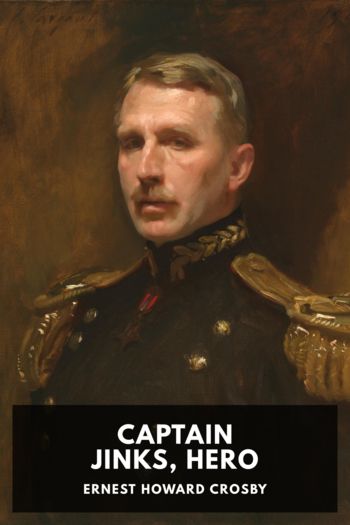What Doesn't Kill Us--A McKenzie Novel, David Housewright [best young adult book series .txt] 📗

- Author: David Housewright
Book online «What Doesn't Kill Us--A McKenzie Novel, David Housewright [best young adult book series .txt] 📗». Author David Housewright
“Commander Dunston,” she said.
Bobby stared at her for a few beats. Believe me; the stare was much worse than a lecture.
“Yes, Detective?” he asked.
“Nothing. I’ll get the flash drive over to FSU.”
Bobby stared some more. Finally, he said “What do we know? We know that McKenzie was doing a favor for a friend named Dave Deese.”
He explained what the favor was, adding that Deese had given me the username and password for Deese’s ancestry account, information that he also shared with Bobby. Gafford took notes; Shipman did not.
“Whether or not this has anything to do with McKenzie getting shot remains to be seen,” Bobby said. “Seems as good a place to start as any, though.”
“Can’t we just wait for McKenzie to come out of the coma?” Shipman asked.
Bobby ignored the question.
“We also know that McKenzie made a date to meet Nina Truhler at seven P.M. at Rickie’s,” he said. “He made the date at four fifty-seven P.M. according to this phone log. He received and made several phone calls after that, but no texts. We have phone numbers but no names.”
“We know this because…”
Bobby set my cell phone in front of Shipman.
“The security functions have been disabled so we have complete access,” he said. “Take this to FSU, too. Put names to the phone calls before and after Nina’s.”
“Yes, sir.”
“McKenzie arrived at RT’s Basement at eight P.M.” Gafford was perusing his notes while he spoke. “Apparently he was there to meet someone if the club owner can be believed. So who arranged the meeting?”
“What we need to find out.” Bobby rubbed his tired face with both hands. “Where is McKenzie’s vehicle?”
“Impound lot,” Shipman said.
“Please tell me he was driving the Mustang.”
“No. That piece of crap Jeep Cherokee.”
“Dammit.”
“What difference does it make?” Gafford asked.
“The Mustang has GPS,” Bobby said. “The Cherokee, I’m not even sure if it has power windows. McKenzie bought it a decade before he came into his money and he’s been nursing it along ever since.”
“That part of town—I could see why he’d drive the Cherokee instead of the Mustang. Doesn’t mean he wasn’t driving the Mustang prior to that, though. We can still trace his movements prior to that.”
“If he was driving the Mustang,” Shipman said.
Nina was in the parking ramp at Regions Hospital, her heels echoing across the concrete as she approached her Lexus. Her cell phone alerted her. She didn’t feel like talking to anyone, yet swiped right when she saw that Bobby was calling.
“What is it?” she asked.
Bobby was taken aback by Nina’s brusque manner; he actually used those words when he told me about the conversation later—taken aback. His first question was about me. Nina repeated what Dr. Linder had told her.
“I’m trying real hard not to scream until I’m inside my car,” she said.
Bobby’s second question was about the Ford Mustang GT that Nina had given to me for my birthday two years ago.
“It’s in the shop,” Nina said.
“For how long?”
“Two, three days.”
“Why?”
“His check engine light went on so he took it to his guy. Turns out he had a bad oxygen sensor. McKenzie said it wasn’t necessarily a big deal except that his guy was so backed up he said that it would take a while before he got to it. McKenzie left the Mustang and told his guy to take his time and just let him know when it was ready.”
“In the meantime, he drove his Jeep Cherokee,” Bobby said.
“The damn thing is older than your kids. It’s older than my kid and she’s twenty-one.”
“You’d think with his money…”
Bobby thought I was personally making it just as hard as I could to catch the person who shot me, but didn’t say so out loud.
“Anything else?” Nina speaking in that brusque tone again.
Bobby asked about gaining access to my computer.
“I know McKenzie keeps notes,” he said.
“I’m not going home,” Nina told him. “I’m so angry right now I might start throwing stuff off the balcony. I’m going to the club. I’ll call security and tell them to let you in, though. Okay?”
“Me or one of my people; depends on how the day shakes out.”
“Your way of saying that you’re not dropping everything to find the person who shot your best friend?”
“I have other responsibilities. Crimes don’t happen one at a time. McKenzie would understand.”
“I know, I know. It’s just … It reminds me of that old Skeeter Davis song. I wake up in the morning and I wonder why everything’s the same as it was.”
“About his computer, does it have a password?”
“Same as his cell phone.”
“Given what McKenzie does in his spare time, you’d think he’d be a little bit more security conscious.”
“You would, wouldn’t you?”
Schroeder Private Investigations was a cop shop. Every field operative who worked there had been an investigator for one law enforcement agency or another—local police, sheriff’s department, state cops, even the FBI. They all acted like it, too, answering calls in white shirtsleeves and shoulder holsters, sitting behind gray metal desks with cigarettes dangling out of their mouths, their sports jackets hanging over the backs of the chairs they sat in, both men and women. SPI also employed a platoon of computer geeks that ran skip traces, conducted background checks, hunted identity thieves, vetted jurors, uncovered hidden assets, and conducted cyber investigations without ever leaving the comfort of their workstations. They were the ones dressed like they were either doing yard work or about to walk the red carpet at the Golden Globes, take your pick.
Riley Brodin-Mulally walked into the office, made her way to the reception desk, and tapped the top of the desk to get the attention of the receptionist. The receptionist was named Gloria. She said, “How may I help you?”
“I wish to see Greg Schroeder,” Riley answered.
Gloria looked at her computer screen.
“Do you have an appointment?” she asked.
“No.”
“I’m afraid Mr. Schroeder is unavailable. I’m sure one





Comments (0)